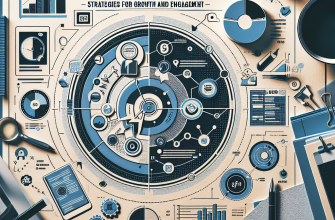- Revolutionizing Content Marketing: How AI Tools Are Changing the Game
- The AI-Powered Content Marketing Landscape
- Content Creation and Curation
- Personalization at Scale
- SEO and Content Optimization
- Real-Time Content Performance Analysis
- Challenges and Ethical Considerations
- The Future of AI in Content Marketing
Revolutionizing Content Marketing: How AI Tools Are Changing the Game
In the ever-evolving landscape of digital marketing, artificial intelligence (AI) is playing an increasingly pivotal role, particularly in the realm of content marketing. As a digital marketing expert, I’ve observed firsthand how AI tools are not just supplementing but significantly transforming our strategies and executions. The integration of AI into content marketing is not just a trend; it’s a profound evolution that is reshaping how brands engage with their audiences.
The AI-Powered Content Marketing Landscape
Content marketing has traditionally been about creating and distributing valuable, relevant, and consistent content to attract and retain a clearly defined audience. However, the challenge has always been the scalability and personalization of content to meet diverse consumer needs. Enter AI, and these challenges are swiftly becoming things of the past.
AI tools are now capable of analyzing large sets of data to glean insights about consumer preferences and behaviors at an unprecedented scale. This data-driven approach enables marketers to craft content strategies that are not only informed by real-time data but are also highly personalized.
Content Creation and Curation
One of the most significant impacts of AI in content marketing is in the area of content creation. AI-powered tools like OpenAI’s GPT-3 have revolutionized the way content is generated. These tools can produce high-quality, coherent, and contextually relevant text based on the inputs they receive. This capability is particularly useful for generating standard content pieces like product descriptions, news articles, and even some types of reports.
Moreover, AI doesn’t just stop at writing text. It extends to content curation as well. AI algorithms can sift through vast amounts of content to find the most relevant articles, videos, and podcasts that are most likely to resonate with a specific audience segment. This not only helps in keeping the content fresh but also ensures it is aligned with user preferences, thereby increasing engagement.
Personalization at Scale
Perhaps the most exciting aspect of AI in content marketing is its ability to personalize content at scale. AI tools analyze user data, including browsing patterns, interaction rates, and engagement levels, to tailor content that meets the individual preferences of users. This hyper-personalization is what makes AI an indispensable tool in a marketer’s arsenal.
For instance, AI-driven platforms can dynamically adjust the content displayed to a user on a website, changing based on the time of day, the user’s past interactions, and what the algorithm predicts they might be interested in next. This level of personalization not only enhances user engagement but also boosts conversion rates.
SEO and Content Optimization
Search Engine Optimization (SEO) is a critical component of content marketing. AI tools are increasingly being used to optimize content to rank higher in search engine results pages (SERPs). AI can help identify trending keywords, predict shifts in consumer search behavior, and suggest content updates that can improve search rankings.
Furthermore, AI can optimize the distribution of content across channels. It can analyze which content performs best on what platforms and at what times, helping marketers to strategically plan their content calendars. This not only improves visibility but also ensures that content reaches its intended audience at the optimal time.
Real-Time Content Performance Analysis
The ability to track and analyze the performance of content in real-time is another area where AI is making a big impact. AI tools provide actionable insights that help marketers understand what types of content work best and why. This continuous loop of feedback and improvement is crucial for refining content strategies and achieving better ROI.
Challenges and Ethical Considerations
Despite its many benefits, the use of AI in content marketing does come with its set of challenges. The dependency on data and algorithms raises concerns about privacy and data security. There is also the risk of losing the human touch, which is essential in creating truly engaging and empathetic content.
Moreover, there are ethical considerations regarding the transparency of AI-driven content and the potential for misuse in creating misleading or biased content. As marketers, it is our responsibility to ensure that AI is used ethically and that we maintain a balance between automation and human oversight.
The Future of AI in Content Marketing
Looking ahead, the role of AI in content marketing is set to grow even more significant. With advancements in AI technology, we can expect even more sophisticated tools that offer greater accuracy in content personalization and performance analysis. The integration of AI with emerging technologies like augmented reality (AR) and virtual reality (VR) will further enhance the interactive and immersive experiences that content can deliver.
AI is undeniably revolutionizing content marketing, offering capabilities that extend far beyond what was previously possible. As digital marketing experts, embracing AI tools can help us create more effective, personalized, and engaging content strategies that not only meet but exceed consumer expectations. However, as we navigate this new terrain, we must also be mindful of the ethical implications and strive to maintain the authenticity that connects brands with their audiences. AI is not just a tool; it’s a game changer in the truest sense, and its judicious use will define the future of content marketing.

A seasoned digital marketing strategist with over 8 years of experience across various areas of digital marketing, including SEO, SMM, PPC, content marketing, and email marketing. Specializes in transforming B2B, B2C, e-commerce, and SaaS businesses by creating effective go-to-market strategies and building thriving digital ecosystems. Known for a data-driven approach to optimizing campaigns and maximizing results.
“If your business is looking to scale or in need of a fresh perspective, feel free to contact”.





